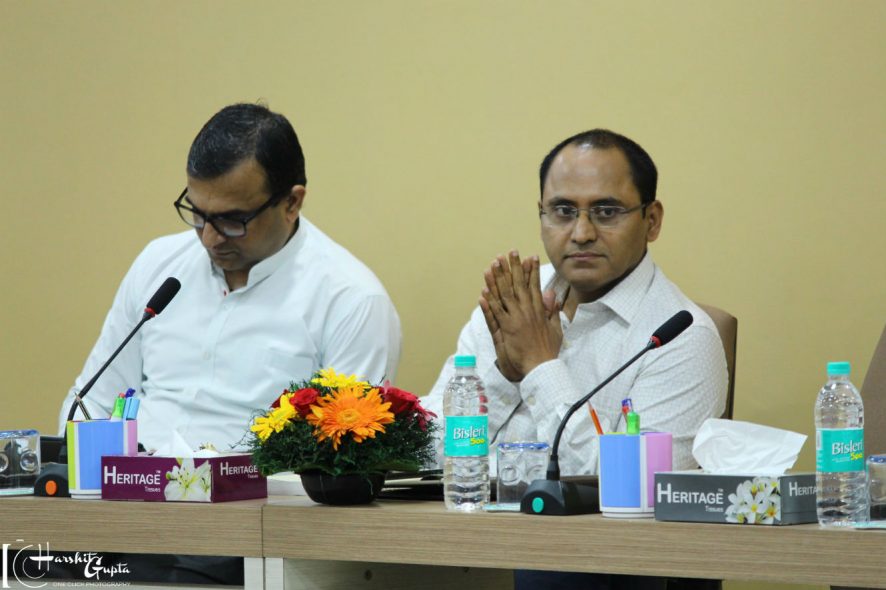Training and Placement Cell, Symbiosis Law School, NOIDA has organised ‘Seminar on Law and Language’ by Hon’ble Justice Dama Seshadri Naidu, Judge, High Court of Kerala on September 22, 2018.
Background: Words are the essential tools of the law. In the study of law, language has great importance; cases turn on the meaning that judges ascribe to words, and lawyers must use the right words to effectuate the wishes of their clients. It has been said that you will be learning a new language when you study law, but it’s actually a bit more complicated.
There are at least four ways in which you encounter the vocabulary of law. First,and most obvious, you will be learning new words that you probably have not encountered before. Second, and a bit more difficult, some recognizable words take on different or new meanings when used in the law. Malice, for example, when used in the law of defamation, does not mean hatred or meanness; it means “with reckless disregard for the truth.” Third, there are words whose meaning expands, contracts or changes, depending on the context or the place in which it is used. In one context (divorce, for example), a person may be considered a “resident” of a state if she has lived there for 6 months. In another context (getting a driver’s license) a person may be considered a “resident” after just a few days. Fourth, there are words that have come to signify large bodies of law or legal doctrine, and act as shorthand terms for complex concepts. The terms “unfair competition,” “due process of law,” “foreseeable,” and “cruel and unusual punishment” are a few examples. These terms have been subject to interpretation by judges in many cases over long periods of time, and there is little hope of finding a clear and concise definition that can serve in all contexts.
Finally, students need to develop a heightened respect for linguistic precision. Because the meaning of words is so crucial to the craft of lawyering, students will be expected to use words carefully and precisely. Once you have learned the legal meanings of words, you are expected to use them with precision. Substituting one for another can result in serious errors and misunderstandings. The legal meanings of words constitute the common language of lawyers and judges, who rely on this language to communicate efficiently and effectively.
Source: Prof. Sheila Hyatt, ‘Legal Language’ available online at https://www.law.du.edu/index.php/law-school-learning-aids/legal-language
About the Resource Person: Justice Dama Seshadri Naidu, Judge, High Court of Kerala
Justice Dama Seshadri Naidu was born on 19.6.1962 at Ganganagunta, near Tirupathi, Chittoor District, Andhra Pradesh. He graduated from Andhra University, Visakhapatnam. He obtained Law Degree from Sri. Venkateswara University, Tirupathi.
Justice Dama Seshadri Naidu enrolled as a member on the roles of Bar Counsel of Andhra Pradesh in March 1997 and started practice at Tirupathi in Civil & Criminal branches of Law. He later shifted practice to the High Court of Andhra Pradesh, as well as the Civil and Criminal Courts in Hyderabad. He represented many corporate entities and nationalized banks.
Justice Dama Seshadri Naidu associated with AP Judicial Academy, Hyderabad, as a guest faculty. He has authored a few Law books, such as the Law of Stamp Duty & Registration in Andhra Pradesh and the Andhra Pradesh Education Code, etc.
Justice Dama Seshadri Naidu was elevated as Additional Judge of the High Court of Andhra Pradesh on September 21,2013. He was sworn in as Judge of the High Court of Kerala on June 30, 2018. He was sworn in as Permanent Judge of the High Court of Judicature at Hyderabad for the States of Telangana and Andhra Pradesh on March 03, 2016.







